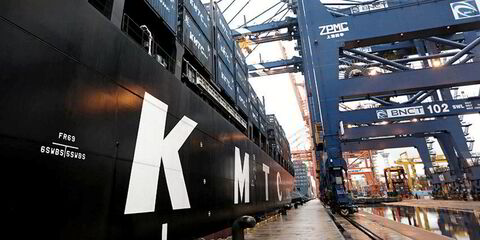International rules that require ships to have ballast water management systems to stave off the spread of invasive species also require crew to maintain a ballast water record book.
But when vessels call at ports in different countries, officials inspecting the ship have different interpretations about what should be in the document.
As the International Maritime Organization gears up for a key meeting in June, member nations and shipping groups are urging the United Nations’ regulator to revise its rules to provide a more unified ballast water record book.
Adding urgency to the discussion is data from the IMO secretariat in March that shows that more than 70% of ballast water management deficiencies on ships are related to the record book.
China and India have both lodged proposals for the upcoming meeting of the Marine Environment Protection Committee.
“For ships, the result of the non-unified ballast water reports is that the seafarers need to be familiar with the complicated ship reporting system of each contracting state, which not only increases the burden on the seafarers, but also leads to confusion,” China said in its submission.
Potential prosecution is a key worry. Entries in the oil record book, for example, have often been at the heart of US criminal prosecution against shipping companies and seafarers in oil dumping cases.
“It is necessary to clarify the reporting requirements to avoid unnecessary punishment or even delay of shipping schedule due to the ballast water report before arrival,” said China in its IMO submission.
Tanker owners’ group Intertanko and others have been calling for a harmonised ballast water record book for years.

For the oil record book, the organisation produces a guide that environment director Tim Wilkins said has become the bible onboard tankers.
But Intertanko produced a commentary in 2020 that said such a definitive guide could not be written for ballast water because of the wide variety of interpretations of what should be in the document.
“You could fill it in like this, you could fill it in like that, and both would be right. But it depends where you go,” Wilkins told TradeWinds.




